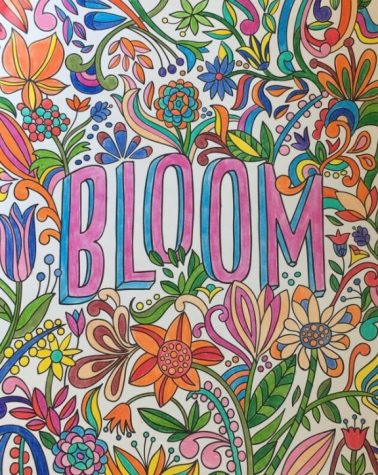Depression Devastates Teen with Major Depressive Disorder
March 16, 2018

I am someone who was diagnosed with Major Depressive Disorder after being admitted into a hospital for Suicidal Ideation. As a result of my recent experience, it is clear that my mental illness should be taken more seriously by teenagers and adults, alike.
Depression is a serious mental illness and should be taken as such. It really is more than just ‘being sad.’ Although yes, sadness is one of the symptoms, there are so many other levels to this complex disorder.
According to TeenHelp.com and the National Institute of Mental Health, depression is one of the most common disorders that teens will face in their lifetime. A total of 2.8 million teens, ages 12-17 years, will have at least one depressive episode. These numbers should wake people up to the scary reality that makes up depression.
Symptoms include sadness, loss of interest in the things you once loved, decreased level of energy, and thoughts of death and suicide, among many more.
My story
When I say that I used to love to write, it was one of my strongest passions. Then, I lost all motivation to write. I didn’t want to do anything, I felt lethargic all the time, so, I took two-hour naps every single day. I needed energy to complete simple tasks and get through each day.
After feeling this way for a couple of years, I mustered the courage and asked my mom to set up an appointment with a therapist. Talking with my therapist was an extreme relief because I needed to talk to someone confidentiality and who wouldn’t judge me. There was a deeper level of understanding when talking to a therapist because of her professional training. She knew what to say to help me and my problems.
A stigma exists around this illness that people who have it or diagnosed with it are weak. This is completely untrue. I like to think of myself as stronger than I was before I sought help and I’m a better person because of it. People deal with depression in their own ways, and may self-treat themselves by doing absolutely nothing, but some people, like myself, find therapy works.
Having to deal with my depression for a couple of months now I’ve developed some coping mechanisms. These are some of the ones that have worked for me in a healthy, productive way: journaling, coloring, talking to a therapist or friend, listening to music, and exercising. If you are a person who struggles with self harm, I learned you could use a marker to doodle on the place you would hurt yourself.
When a person has depression, there is a decrease in a neurotransmitter called Serotonin. This chemical is responsible for the balance of moods and other things both in the body and in the brain. To help balance out these chemicals, medications such as Selective Serotonin Reuptake Inhibitors and Serotonin Norepinephrine Reuptake Inhibitor, otherwise known as anti-depressants are prescribed. Not everyone has the same reaction to each new medication and some people with depression don’t need medication. It takes quite a bit of trial and error before you find the medication that works best for you.
I have been prescribed to both Zoloft and Effexor and both gave me different side effects. I am now on Prozac, and so far it is working better for me than the other two that I was taking. If you’re on them, please report any side effects to your psychiatrist.
Misconceptions
There is stereotype that people with depression are lazy and don’t do anything. This is a complete lie. Getting out of bed is one of the hardest things to do while battling depression, yet these people are hard-working and they still manage to do everything that a mentally healthy person does.
Depression is as much as a real illness as diabetes. Those with diabetes lack the chemical of insulin and those with depression lack the chemical of serotonin. Yet, you wouldn’t judge and believe the stereotypes of diabetes would you? No, because you understand and empathize that not all bodies are the same and it’s the same thing with depression. Not everybody’s mind is the same and we all deal and process things differently.
Seek help
Depression is a tough illness to deal with, yet many students endure. If you feel like you’re dealing with any sort of depression whether it be mild or severe, please notify somebody and talk to a professional. Whether it be at school with our own Behavioral Health Specialist, who is located in the counselor center, or someone outside of school. If you are dealing with suicidal thoughts, please call somebody.
The Suicide Hotline is 1-800-273-8255. The line is open 24/7 and you will always be talking with someone and not an automated machine. If there is an emergency, always call 911 or poison control.
Always remember that you are not alone in this fight! I am living proof that seeking help does work. It really is a daily struggle but you just have to take it day by day. You would be surprised by the support you would receive from both friends and family. Both of my parents have been a significant factor in my recovery.

